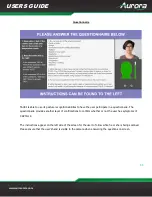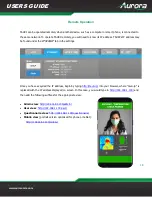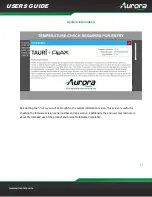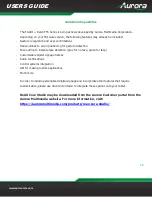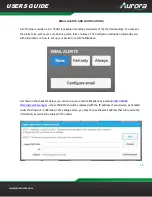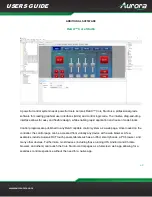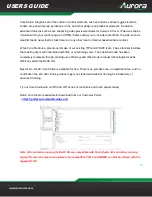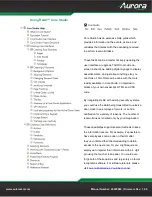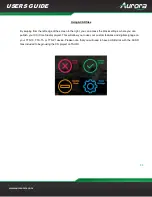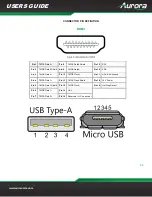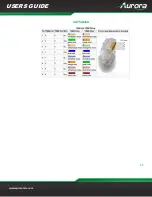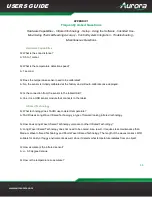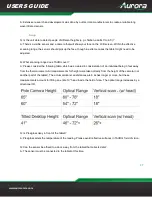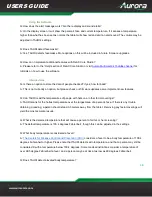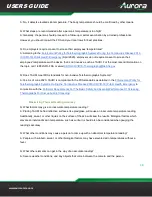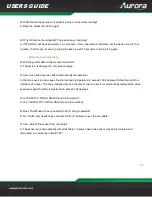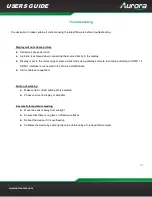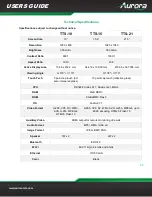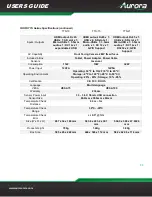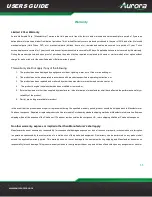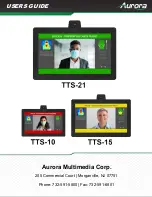
49
USERS GUIDE
www.auroramm.com
A: No, it detects elevated skin temperature. The body temperature should be confirmed by other means.
Q: What steps are recommended after a person’s temperature is too high?
A: Generally, the person should proceed to a follow-up medical examination by a trained professional.
However, you should consult the FDA and your local laws for best practices.
Q: Do employers require consent to screen their employees' temperatures?
A: According to the
Enforcement Policy for Telethermographic Systems During the Coronavirus Disease 2019
(COVID-19) Public Health Emergency
(April 2020), employers do not require consent to screen their
employees' temperatures with a device that is not invasive, such as TAURI. For the most recent information on
the topic, call 1-888-INFO-FDA or email
Q: Does TAURI meet FDA standards for non-invasive Telethermographic Systems?
A: Yes. As of June 2020, TAURI is compliant with the FDA standards as detailed in the
Telethermographic Systems During the Coronavirus Disease 2019 (COVID-19) Public Health Emergency
conjunction with the
Particular Requirements For The Basic Safety And Essential Performance Of Screening
Thermographs For Human Febrile Screening
Maximizing Thermal Reading Accuracy
Q: What factors may give an inaccurate temperature reading?
A: Placing TAURI behind reflective surfaces, like plexiglass, will cause an inaccurate temperature reading.
Additionally, sweat, or other liquids on the surface of the skin will skew the results. Biological factors which
elevate an individual's skin temperature, such as sunburn, should also be considered when gauging the
reading's accuracy.
Q: What other conditions may cause a person to come up with an abnormal temperature reading?
A: People with sunburn, sweat, or other biological factors may have elevated skin temperatures without a
fever.
Q: What other elements can get in the way of an accurate reading?
A: Severe weather conditions, and any objects that come between the camera and the person.

